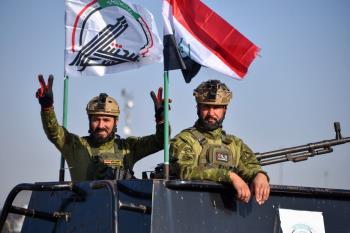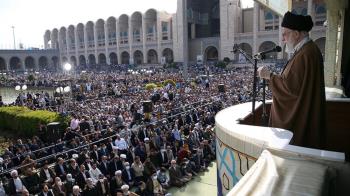Alwaght-Foreign ministers of Caspian states met to discuss preparations for the forth Caspian summit in September. Since dissolution of Soviet Union and independence of this communist union's republics, there have been numerous disputes over Caspian Sea and its distribution.
The main problem among Caspian states is lack of an acceptable agreement on legal method of Caspian Sea distribution. Since changing the legal regime of a closed basin from a two shares into a five shares is unprecedented and because basic developments are effective in international treaties, determining an agreed has become a regional challenge.
According to principles of international law, since a new treaty among new established states of Caspian Sea, namely Azerbaijan, Turkmenistan, and Kazakhstan as well as Iran and Russia is not inked, 1921 and 1940 treaties are valid and are counted as the base of legal regime of the Caspian Sea. However, determining the legal regime of Caspian Sea is not limited to legal aspects but its political and economical aspects are also important. Although many negotiations are held during recent years at different levels among Iran, Russia, Azerbaijan, Kazakhstan, and Turkmenistan that sometimes have had good results but no agreed framework is achieved for legal regime of Caspian Sea up to now. It worth mentioning that not determining a legal regime may lead to increasing militarism in Caspian Sea to maintain energy sources.
Islamic republic of Iran has always insisted on a peaceful and stable Caspian Sea that is important both on determination of a legal regime for Caspian Sea in one hand and preventing trans-regional entrance into common borders on the other hand. While Iran has tried to establish peace and stability in Caspian Sea, trans-regional powers, especially America, has tried to intensify their presence in the region and strike military-security contracts.
Any step towards militarization of Caspian Sea is a dangerous act against peace and stability in the region and can hamper the process of determining a legal regime. Any foreign interference in the Caspian Sea and holding joint exercises with trans-regional powers can make the security affairs of the region more complicated. Such provocations encourage other countries to arm themselves or strike military contracts with trans-regional powers.
For this reason, Iran has no desire for militarization of the Caspian Sea. It seems that Iran has deployed its military forces to the Caspian Sea to protect its borders and has never followed the militarization policy in the region. By the way, it does not mean that Iran has neglected its military presence in region, but while being against Caspian's militarization Iran has tried to regulate its army presence in accordance to other costal countries' army presence.



























